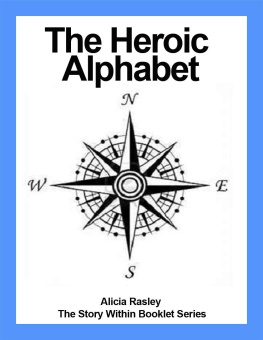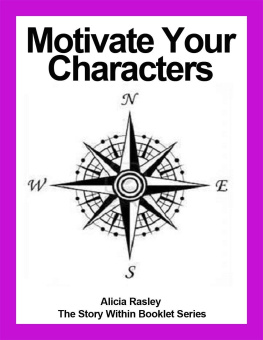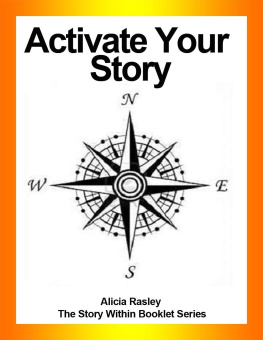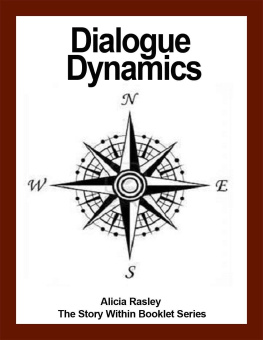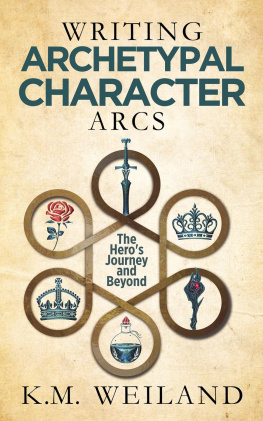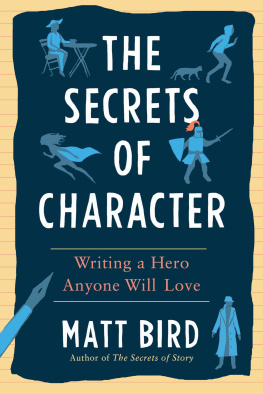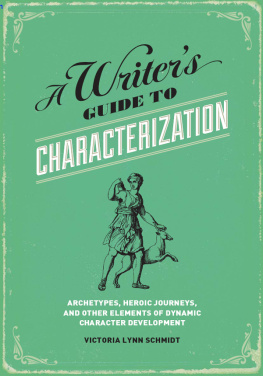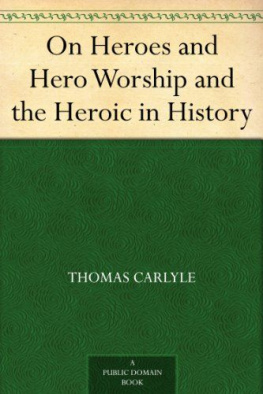
THE HEROIC ALPHABET
Secon d in the Story Within Booklet Series
BY
ALICIA RASLEY
Copyright 2010 by Alicia Rasley
Booklet 2 in The Story Within Writing Elements series
THE HEROIC ALPHABET by Alicia Rasley
Romance writers often use the terms "Alpha male" and "Beta male" to characterize different types of heroes. The problem with these terms is that they are defined rather differently by writers than by the zoologists who invented them to describe members of animal groups. Thus we end up with "Alpha hero" referring confusingly to several almost oppositional categories of heroes, including the leader, the dark and dangerous (D&D), and the wounded; and the Beta seeming like no hero at all.
I'd like to propose that we expand our alphabet of heroes for greater clarity and flexibility. Let's break that old Alpha designation into Alpha (the Leader), Delta (the D&D), and Theta (the Wounded). Beta designates the less ruthless, more easygoing fellow who has learned along the way to wash his own dishes.
Now let me add the disclaimer that heroes ought to be as individual as heroines, or as authors, for that matter. These types are only categories, not recipes. So read over the definitions, consider if your hero fits into any of them, answer the questions posed, explore the possibilities, see how they connect with your character... but if anything here is in conflict with your vision, ignore it. I have no desire to help create cookie-cutter characters. But it might help to explore what motivations and conflicts are more or less inherent in some heroic types. And I do want to draw attention to that word "heroic". In my view, the hero has to be more than the male lead in a novel. To earn the title hero, he has to do something heroic. So I'll point out opportunities for each type of hero to rise to the occasion and be heroic.
So, with no further ado, I present to you the Heroic Alphabet.
ALPHA: THE MAN IN CHARGE
Alpha means "first". So, as historical author Jo Beverley points out, a true Alpha hero is a leader. Not a dark and dangerous type. Not an outsider. Far from it. He is a leader of a group, a political animal. Leadership is not only his goal; it is his defining characteristic, one that influences every decision he makes and every step he takes. He knows he is worthy when his people grant him power over their lives, and if he's a hero, he will make good use of it, building a better society or strengthening the family.
But the Alpha hero should never forget that he rules at the behest of his people, so he must make himself worthy of that honor and maintain his worthiness during his reign. That means he must always stay in touch with those who follow him, and give them what they want and need in a leader, or they will vote him out (or overthrow him, or make him a figurehead). Staying in touch requires exceptional social skills, including empathy and intuition, as well as the power to command respect on a personal as well as political level, and the ability to retain principles while moving towards compromise. (A leader must lead all, not just those who agree with him.)
The Alpha hero can have as dark and dangerous past as any D&D hero. But what he does with that backstory is what makes him Alpha. Notice how often males in leadership positions have difficult childhoods. Bill Clinton was raised mostly by a single mother and her elderly parents, and abused by his stepfather. He became a governor and president who strengthened laws protecting children, not a vigilante gunning for child abusers (as a D&D hero might have done). After John McCain spent years in a POW camp, he became a senator and spokesman for veterans, not a Rambo. An Alpha man who grew up in dire poverty might found a huge business empire or direct a chain of soup kitchens and homeless shelters; he won't head off to the Montana mountains where a man needs only a knife and a flint to be self- sufficient.
In other words, an Alpha hero deals with tragedy and trauma by seeking control over the world around him. That control will be beneficial to others, not just himself, or he'll be an Alpha villain!
I suspect that true Alpha heroes have always been more popular in Europe than in the US. The traditional European quest (think of Joseph Campbell's Heroic Journey model) has the young man venturing out away from his home country not to escape it but to gain the skills necessary to become its leader. King Arthur is an Alpha hero, and so is Dorothy Dunnett's Lymond-- their destiny is to return home and take over ruling the land or the clan. They might even try to escape their fate, but they can't. Lymond, for example, always ends up as the leader, because people automatically follow him. He might doubt himself, but as he encounters and overcomes internal and external obstacles, his confidence as well as his strength grows, and he finds it easier to accept the responsibility of leadership.
That sort of determinism, that some are born to lead, is consistent with pre-20 th Century thought and history. But in the United States, you'll see many more stories where a leader is not born but made shaped by experience and forged by conflict.
ALPHA CONFLICTS
Now even with a dark or difficult past, an Alpha hero's journey might seem an easy one. He might seem born to the task of leadership (and indeed, many inherit the position of laird or lord or leader) and you might think he need only accept the scepter when it is offered. In fact, in his progress to and through power he is likely to encounter many obstacles, and each one of them can form the conflict for a book.
Loyalty vs. truth (example: should I turn in my mentor the corrupt senator?)
Ambition vs. friendship (should I care that my friends resent me n ow that I'm class president?)
Use of power vs. abuse (why not get my dad appointed to that commission?)
Ethics vs. corruption (everyone else is getting rich off these social programs; why shouldn't I?)
Confidence vs. insecurity (am I up to this? I could hardly pass trig in high school-- how can I write a budget?)
Power vs. responsibility (can I really send twenty thousand young soldiers to what might be their slaughter?
Outside approval vs. self-love (if those voters really knew who I am, they'd despise me)
Maybe there will even be a point where he has to sacrifice his ambitions (and his genuine desire to help others) for love. And there's always Election Night, when the People Have Spoken and They're Saying Get Lost, and suddenly he's lost his whole purpose in life, indeed, his entire identity.
ALPHA HEROINES
What kind of heroine does a dynamic man of power, charisma, and respect need? Well, for one thing, he probably needs someone who will still love him if all that power, charisma, etc., is taken away. That is, he doesn't need a groupie, or some weak or selfish or power-hungry woman who has to get her authority secondhand. He also doesn't need a rival who scoffs at his ambitions or cheers at his defeats. And he for sure doesn't need a yes-woman who can't think for herself and assumes everything he does is just fine.
The Alpha hero's heroine has to be secure enough to share him with his public, so she's likely to be quite independent herself. She can't just become another one of his followers or part of his entourage, dependent on his largesse. She will have a life of her own, even a cause of her own. Indeed, she might be the moral force that helps keep him on the righteous path, rather than on that slope into corruption and powermongering. Perhaps she's a civil rights leader, or a minister, or a crusading journalist, someone who expects far more of him than simple charisma.
Next page
